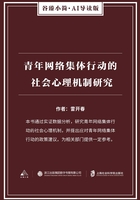That night,while the owls were hooting from the forest that encircled the sleeping townlet,and the South-Avon was gurgling through the wooden piles of the bridge,Sir John died there in the arms of his wife.She concealed nothing of the cause of her husband's death save the subject of the quarrel,which she felt it would be premature to announce just then,and until proof of her status should be forthcoming.But before a month had passed,it happened,to her inexpressible sorrow,that the child of this clandestine union fell sick and died.From that hour all interest in the name and fame of the Horseleighs forsook the younger of the twain who called themselves wives of Sir John,and,being careless about her own fame,she took no steps to assert her claims,her legal position having,indeed,grown hateful to her in her horror at the tragedy.And Sir William Byrt,the curate who had married her to her husband,being an old man and feeble,was not disinclined to leave the embers unstirred of such a fiery matter as this,and to assist her in letting established things stand.Therefore,Edith retired with the nurse,her only companion and friend,to her native town,where she lived in absolute obscurity till her death in middle age.
Her brother was never seen again in England.
A strangely corroborative sequel to the story remains to be told.
Shortly after the death of Sir John Horseleigh,a soldier of fortune returned from the Continent,called on Dame Horseleigh the fictitious,living in widowed state at Clyfton Horseleigh,and,after a singularly brief courtship,married her.The tradition at Havenpool and elsewhere has ever been that this man was already her husband,Decimus Strong,who remarried her for appearance'sake only.
The illegitimate son of this lady by Sir John succeeded to the estates and honours,and his son after him,there being nobody on the alert to investigate their pretensions.Little difference would it have made to the present generation,however,had there been such a one,for the family in all its branches,lawful and unlawful,has been extinct these many score years,the last representative but one being killed at the siege of Sherton Castle,while attacking in the service of the Parliament,and the other being outlawed later in the same century for a debt of ten pounds,and dying in the county jail.
The mansion house and its appurtenances were,as I have previously stated,destroyed,excepting one small wing,which now forms part of a farmhouse,and is visible as you pass along the railway from Casterbridge to Ivel.The outline of the old bowling-green is also distinctly to be seen.
This,then,is the reason why the only lawful marriage of Sir John,as recorded in the obscure register at Havenpool,does not appear in the pedigree of the house of Horseleigh.
Spring 1893.
THE DUKE'S REAPPEARANCE--A FAMILY TRADITIONAccording to the kinsman who told me the story,Christopher Swetman's house,on the outskirts of King's-Hintock village,was in those days larger and better kept than when,many years later,it was sold to the lord of the manor adjoining;after having been in the Swetman family,as one may say,since the Conquest.
Some people would have it to be that the thing happened at the house opposite,belonging to one Childs,with whose family the Swetmans afterwards intermarried.But that it was at the original homestead of the Swetmans can be shown in various ways;chiefly by the unbroken traditions of the family,and indirectly by the evidence of the walls themselves,which are the only ones thereabout with windows mullioned in the Elizabethan manner,and plainly of a date anterior to the event;while those of the other house might well have been erected fifty or eighty years later,and probably were;since the choice of Swetman's house by the fugitive was doubtless dictated by no other circumstance than its then suitable loneliness.
It was a cloudy July morning just before dawn,the hour of two having been struck by Swetman's one-handed clock on the stairs,that is still preserved in the family.Christopher heard the strokes from his chamber,immediately at the top of the staircase,and overlooking the front of the house.He did not wonder that he was sleepless.
The rumours and excitements which had latterly stirred the neighbourhood,to the effect that the rightful King of England had landed from Holland,at a port only eighteen miles to the south-west of Swetman's house,were enough to make wakeful and anxious even a contented yeoman like him.Some of the villagers,intoxicated by the news,had thrown down their scythes,and rushed to the ranks of the invader.Christopher Swetman had weighed both sides of the question,and had remained at home.
Now as he lay thinking of these and other things he fancied that he could hear the footfall of a man on the road leading up to his house--a byway,which led scarce anywhere else;and therefore a tread was at any time more apt to startle the inmates of the homestead than if it had stood in a thoroughfare.The footfall came opposite the gate,and stopped there.One minute,two minutes passed,and the pedestrian did not proceed.Christopher Swetman got out of bed,and opened the casement.'Hoi!who's there?'cries he.
'A friend,'came from the darkness.
'And what mid ye want at this time o'night?'says Swetman.
'Shelter.I've lost my way.'
'What's thy name?'
There came no answer.
'Be ye one of King Monmouth's men?'
'He that asks no questions will hear no lies from me.I am a stranger;and I am spent,and hungered.Can you let me lie with you to-night?'Swetman was generous to people in trouble,and his house was roomy.
'Wait a bit,'he said,'and I'll come down and have a look at thee,anyhow.'














